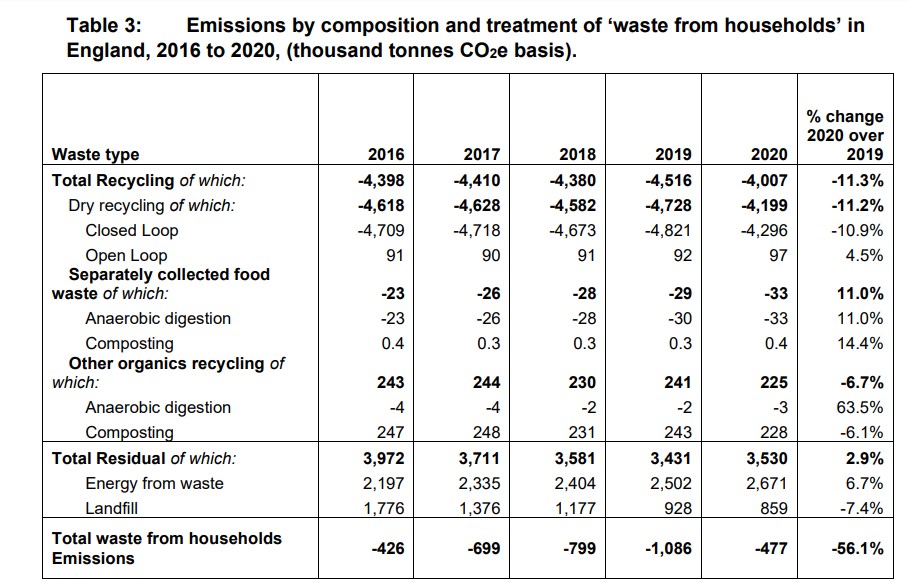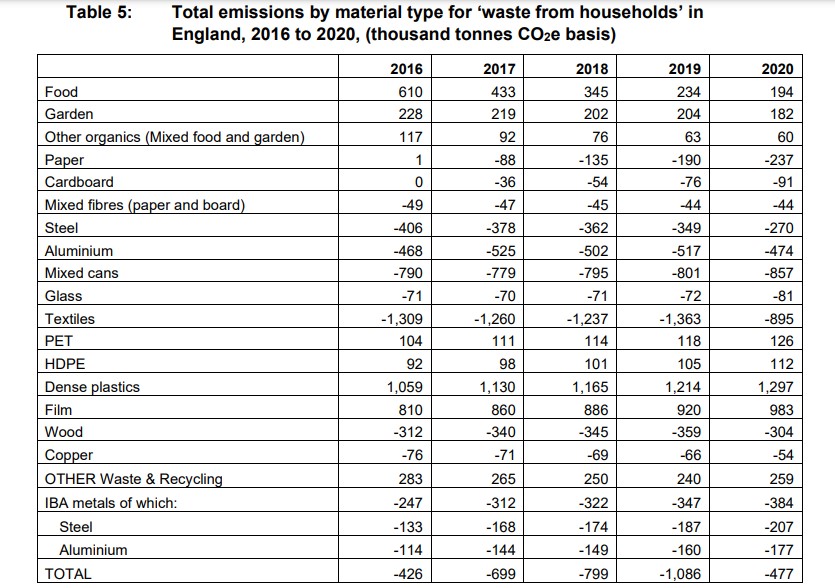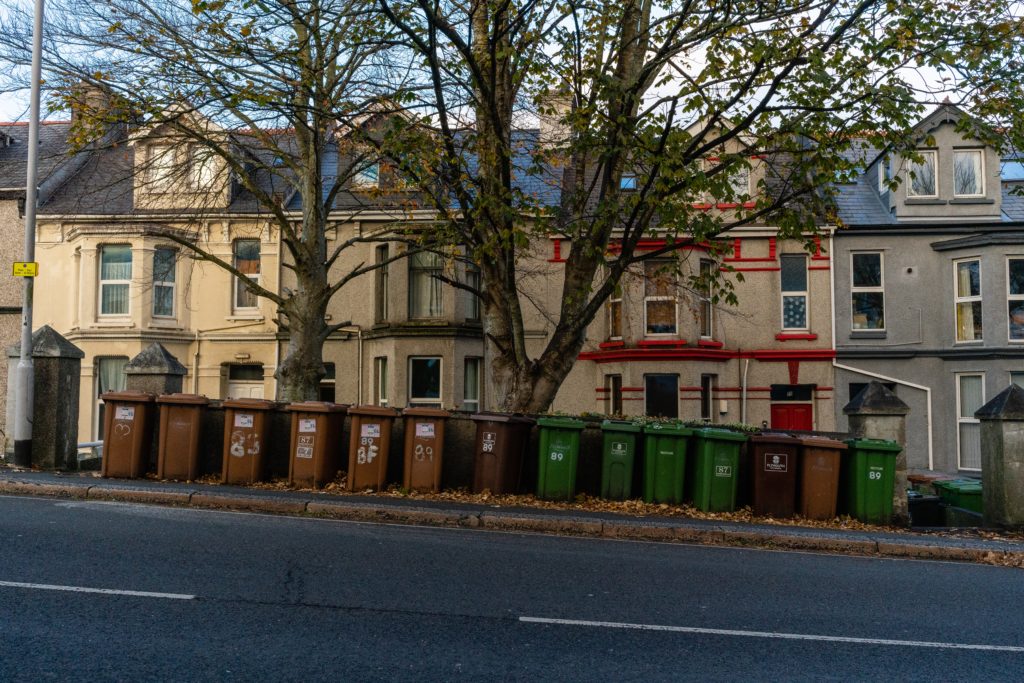The figures are estimates of the impact of different materials contained within waste following treatment by recycling, incineration for energy from waste, and landfill.
The figures could be used as a future metric instead of weight-based targets, something Thérèse Coffey is known to favour (see letsrecycle.com story), but Defra cautioned that they are a “work in progress”.
Data in the document is also “subject to revision as more up to date composition data becomes available and methodologies are improved”.
Savings
Using a methodology calculated by WRAP, the data below represents net emissions by management method, showing that emissions were rapidly falling between 2016 and 2019, before rising again during 2020 due to the pandemic.
Negative values indicate that overall for all materials there is a net saving in emissions for a waste management method over use of virgin material or fuel. The carbon emissions include not only emissions from waste management processes, but also savings from the use of recycled materials or generated energy compared against emissions from the production of virgin materials or energy generation using UK average grid emissions.

Defra highlighted that emissions from residual waste over the five years were highest in 2016 at nearly four million tonnes CO2e, and “have fallen across the years as the tonnage of waste sent to landfill has reduced and were 3.5 million tonnes in in 2020”.
Emissions from landfill accounted for 45% of the residual waste total in 2016, decreasing to around 24% in 2020, the document added.
Pandemic
The data also laid bare the impact of the Covid pandemic on carbon emissions from household waste.
Total net emissions from waste from households were -0.5 million tonnes in 2020, having increased by 0.7 million tonnes from -1.1 million tonnes CO2e in 2019.
“This was due to the effects of the COVID-19 pandemic increasing residual waste generation and disrupting waste collection for recycling and composting,” Defra explained.
Trends
The data also looked at total emissions by material type for ‘waste from households’ in England between 2016 and 2020.
This showed that emissions from food waste have fallen from 610,000 tonnes per year in 2016 to 194,000 tonnes, mainly due to the reduction in the tonnage of residual waste sent to landfill.
However, garden waste remained the same, which Defra said is “because the tonnage of garden waste collected for composting is affected mainly by growing conditions”.
Emissions from paper and cardboard and mixed fibres have decreased by 325,000 tonnes between 2016 and 2020. This is mainly due to the decrease in residual waste sent to landfill.
However, emissions have increased from film and HDPE, and textiles saw a huge rise in 2020. Defra put this down to less material collected for recycling and reuse, chiefly driven by charity shop closures during the COVID-19 pandemic.

Defra explained that there are several factors at play affecting changes in emissions between years – most notably the tonnage of waste generated, and the change in proportion of waste that is recycled over time.
Useful link











Subscribe for free